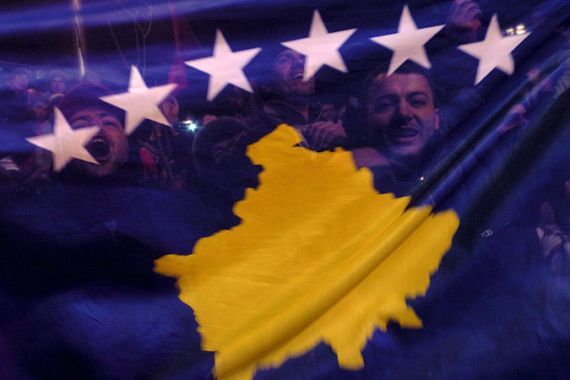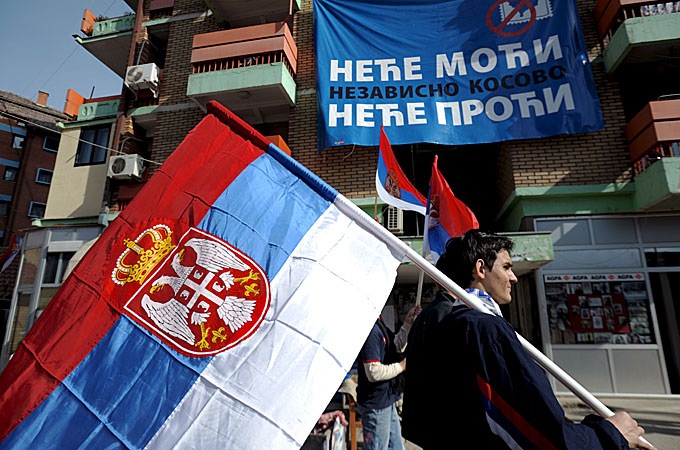Serbia, Kosovo in ‘historic’ talks
First direct negotiations since breakaway region declared independence three years ago take place under EU mediation.

 |
| Serbia has condemned Kosovo’s declaration of independence and blocked it from joining international bodies [EPA] |
Serbia and Kosovo are holding their first high-level talks since the breakaway region declared independence from Belgrade three years ago.
The European Union-mediated talks in Brussels, the Belgian capital, will focus on practical issues such as border crossings, trade and air traffic control, rather than mutual recognition or apology.
However the 27-nation bloc is hoping that Tuesday’s meeting will lead to renewed contacts between the two sides, whose relations have been frozen since 2008.
“The objective of the talks is to improve the lives of people in the region, to improve co-operation within the Balkans as a whole and bring [them] more in line with European standards,” a senior EU official was quoted by the Reuters news agency.
Making progress in resolving those issues is also likely to help boost Belgrade or Pristina’s chances of gaining membership to the EU.
‘Miracles should not be expected’
Serbia lost control of Kosovo in 1999 when Nato waged a bombing campaign to stop the killings of ethnic Albanians in a counter-insurgency war.
The impoverished province of two million people declared independence in February 2008 after nearly a decade under UN administration.
Belgrade continues to block Kosovo’s trade and stops passengers with Kosovo passports or car registrations.
Many Serbs consider Kosovo the birthplace of their nation and the region is home to important Serbian Orthodox monasteries as well as a Serbian minority population.
Pristina is also unable to gain its own telephone country code or join many international bodies, including the United Nations, because of Belgrade’s opposition. Last year Serbia was disappointed after its request to the International Court of Justice to rule on whether Kosovo’s independence resulted in the court backing Pristina.
Kosovar Albanians are also angry at Belgrade’s refusal to apologise for the deaths of ethnic Albanians before the 1999 Nato intervention, while a recent Council of Europe report linking Hashim Thaci, Kosovo’s prime minister, to an organ trafficking ring, has escalated tensions between the two sides.
Following Tuesday’s meeting diplomats from Serbia and Kosovo are likely to meet frequently in Brussels under the presence of mediators.
But observers are cautious about any substatial process being made.
“We will try to resolve some key issues between us by the end of the year and we are optimists, though miracles should not be expected,” Borko Stefanovic, Serbia’s top negotiator, said in an interview.
Edita Tahiri, Kosovo’s chief negotiator and deputy prime minister, said she hoped the talks would open new perspectives.
“It is time not to forget history but to rise above it and look ahead,” she told the AFP news agency last week.